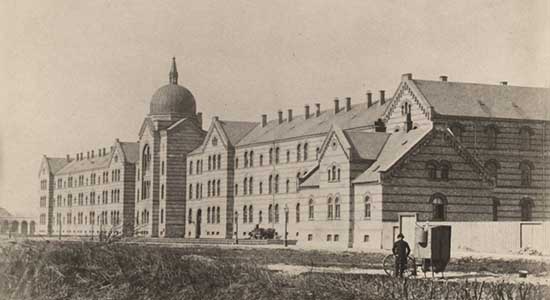Experienced Coercion in Residential Care
This project investigated how coercion is experienced by persons with intellectual disabilities and autism in residential services. The study was based on historical sources and qualitative interviews.

In recent years, the use of force in residential facilities for people with cognitive disabilities has become an intensely debated topic. However, how the use of force is experienced by people who are subjected to it has largely been an absent perspective in both the debate and the literature. Therefore, the research project will shed new light on the residents’ own experiences with the use of force.
The aim of the project is to provide residents with better opportunities to bring their experiences into the public debate. In addition to residents, the project also targets pedagogues and politicians.
The project will consist of the following components:
- a historical framework that describes the path towards current legislation and practice and identifies the experiences of people in care with the use of force over time, and
- an anthropological study of experiences with the use of force among people in residential care today.
By virtue of the new knowledge, the project will support several changes for the benefit of residents in residential care centers. First, the project will provide residents with better opportunities to have a voice and make their experiences heard in the public debate as well as to share their views on how best to avoid the use of coercion and force.
Second, the project will help to qualify the pedagogical staff’s ethical judgements and proportionality assessments in the navigation between duty of care and use of force.
Third, the project will contribute to an increased awareness among political actors and decision-makers of the human and existential consequences of legislation in this area and the human values that underpin it.
Fourth, the project will methodologically and theoretically contribute to research on citizens’ experiences with and perspectives on the social programs of the welfare state.
The study will comprise a historical and a contemporary anthropological track, with an emphasis on the latter. The historical track will offer an understanding of the path towards current legislation and practice in this area and put the current debate into perspective.
Based on the existing literature, supplemented by archival studies of relevant archival groups, legislation for people with cognitive disabilities is described from the introduction of the Danish Constitution to the present day. Special focus is placed on the political processes and public debates related to rights and the use of force. Similarly, the historical track will provide insights into how people placed in care have experienced the use of force over time. This study will be based on written complaints, statements to the media, autobiographies, and empirical material from interviews with individuals previously placed in care under the mental health care system conducted in connection with the project “In Care, in History.”
Meanwhile, the contemporary anthropological track will clarify how different residents experience and make sense of different forms of the use of force. It will also explain the residents’ knowledge of their rights and the extent to which they are involved in the work with reports and action plans.
Similarly, the various emotional and social reactions to and consequences of the use of force are illustrated. Finally, the focus is on the residents’ own suggestions for how to avoid the use of force. Overall, the contemporary track will provide insights into how concepts such as integrity, self-determination, freedom, power, coercion, safety, care, and dignity are understood from the residents’ perspective.
The results will be published as a book entitled Experienced Coercion: Frustrations and retention among residents in residential care facilities (University Press of Southern Denmark, autumn 2020).
To disseminate the project and discuss its results in relevant professional and political circles, four evening meetings will be held after the publication of the book, in cooperation with user organizations, professional organizations, and educational institutions.
Forskere
| Name | Title | Phone | |
|---|---|---|---|
| Jensen, Stine Grønbæk | Assistant Professor - Tenure Track |


